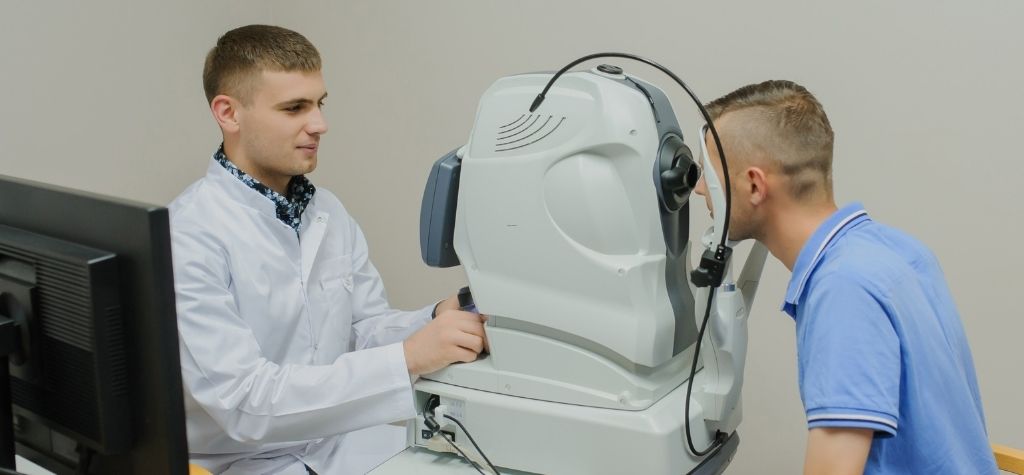Eye exams are often overlooked in the realm of preventive health care. Many assume if they can see clearly, their eyes must be fine. But the reality is far more complex. A yearly eye exam can detect not only vision changes but also signal early warnings for a variety of serious health conditions. In this guide, we break down why you really need a yearly eye check-up—even if your vision feels perfect.
Importance of Regular Eye Exams

Early Detection of Vision Problems
Many vision issues, like nearsightedness or farsightedness, develop gradually. You may not notice the changes until they severely affect daily life. A comprehensive eye exam can detect these early and help correct them before they worsen.
Monitoring Vision Changes Over Time
Your eyes change as you age. Regular check-ups help track these changes and adjust your prescription accordingly. It ensures you’re not straining your eyes unnecessarily and helps maintain optimal vision quality.
Detecting Silent Eye Diseases
Glaucoma: The Sneaky Vision Thief
Glaucoma is often called the “silent thief of sight” because it has no noticeable symptoms until significant damage has occurred. Regular eye exams can catch the early signs, such as increased eye pressure, enabling timely intervention.
Macular Degeneration and Diabetic Retinopathy
Age-related macular degeneration (AMD) and diabetic retinopathy are other silent destroyers of vision. Advanced imaging during an eye exam can detect early signs of these conditions and help prevent vision loss with early treatment.
Eye Exams and Overall Health
Discovering Hypertension and Diabetes
Believe it or not, eye doctors can detect signs of systemic diseases like high blood pressure and diabetes by observing blood vessels in the retina. This makes your annual eye check-up a powerful preventive tool.
Eye Exams as a Window to Brain Health
Vision problems can sometimes be a sign of neurological issues like multiple sclerosis or even tumors. Regular eye exams help catch these signs before symptoms worsen.
Children and Eye Health

Why Kids Shouldn’t Skip Eye Exams
Children need regular eye exams to detect conditions like lazy eye (amblyopia) or crossed eyes (strabismus) which are best treated early.
Impact of Vision on Learning and Development
About 80% of learning in children happens through vision. Undetected vision problems can mimic ADHD and cause learning delays. Annual eye exams are essential for academic success and healthy development.
Adults and Changing Vision
Age-Related Vision Decline
From your 40s onward, you may notice difficulty focusing on close objects—a condition called presbyopia. An eye exam ensures timely correction and helps maintain productivity.
Computer Vision Syndrome
Extended screen time causes eye fatigue, dryness, and headaches. Eye exams can identify symptoms of digital eye strain and suggest protective strategies like blue light filters or frequent breaks.
Seniors and Vision Preservation
Cataracts and Other Age-Related Eye Issues
Cataracts develop slowly but can drastically reduce your vision if unchecked. Seniors especially benefit from annual exams to monitor for cataracts and other degenerative conditions.
The Risk of Vision Loss with Aging
Vision loss isn’t an inevitable part of aging. With regular exams, most age-related vision issues can be managed or prevented.
Vision Insurance Benefits

Maximizing Coverage Before It Expires
Most vision plans cover one comprehensive exam annually. If you skip it, you’re essentially leaving money on the table.
Cost Savings from Preventive Care
Catching conditions early avoids costly surgeries and treatments down the line. Preventive care pays off—not just in health, but financially too.
Eye Health and Lifestyle Choices
Digital Eye Strain from Screens
We spend hours on phones, tablets, and computers. Annual eye exams can help mitigate the damage from digital screens with tailored advice.
Effects of Smoking, Diet, and Sleep
Smoking increases the risk of cataracts and AMD. Poor diet and sleep affect eye health too. An optometrist can guide lifestyle changes to protect your vision.
Myths About Eye Exams
“I See Fine, So I Don’t Need One”
Clear vision doesn’t guarantee healthy eyes. Many serious conditions show no symptoms until it’s too late.
The False Belief that Glasses Are Permanent
Prescriptions can change, improve, or worsen. Regular check-ups ensure your glasses or contacts still suit your current needs.
How Often Should You Get an Eye Exam?
Guidelines by Age Group
- Children (3–5 years): At least once
- School-aged (6–18 years): Every 1–2 years
- Adults (19–60 years): Every 2 years, annually if at risk
- Seniors (60+): Annually
Special Cases: Diabetics and At-Risk Individuals
Those with diabetes, a family history of glaucoma, or who wear contact lenses should get annual exams without fail.
What to Expect During an Eye Exam

Common Tests and Procedures
- Visual acuity test
- Retinal imaging
- Eye pressure check
- Slit-lamp examination
Questions You Should Ask Your Eye Doctor
- Are there signs of any systemic issues?
- How often should I return?
- What can I do to maintain better eye health?
Role of Optometrists vs. Ophthalmologists
Who Should You See and When?
- Optometrists: Routine eye care and vision correction.
- Ophthalmologists: Surgery and advanced disease treatment.
Collaborative Eye Care
Often, both specialists work together to manage complex cases, ensuring comprehensive care.
Common Eye Conditions Identified During Exams
Nearsightedness, Farsightedness, and Astigmatism
These refractive errors are easily corrected but need proper diagnosis for the best treatment.
Dry Eyes, Allergies, and Infections
Chronic dry eye and undiagnosed allergies can reduce life quality. A yearly exam can catch and treat these early.
Preventive Eye Care Tips
Daily Habits for Healthy Vision
- Follow the 20-20-20 rule (every 20 minutes, look 20 feet away for 20 seconds)
- Stay hydrated and sleep well
- Eat leafy greens, fish, and eggs
Protective Eyewear and UV Protection
Wear sunglasses with 100% UV protection and use safety goggles when needed at work or home.
Latest Technology in Eye Exams

Digital Imaging and OCT
Optical Coherence Tomography (OCT) helps detect retinal issues in great detail, even before symptoms arise.
AI-Powered Diagnostics
Artificial Intelligence is helping doctors diagnose conditions faster and with more accuracy than ever before.
FAQs About Eye Exams
1. Can I skip my eye exam if I have perfect vision?
No. You could still have underlying health issues that only a professional can detect.
2. How long does an eye exam take?
Typically between 20 to 45 minutes.
3. Are eye exams covered by insurance?
Many vision plans include one yearly exam.
4. Is dilation necessary?
Yes, dilation gives a clearer view of your retina and is crucial for detecting issues.
5. What age should kids start eye exams?
Children should get their first comprehensive exam at 6 months, then at age 3, and before first grade.
6. How do I know if I have eye disease?
Most eye diseases have no early symptoms—only an eye exam can confirm.
Conclusion: The Eye-Opening Truth About Yearly Exams
Your eyes are not just windows to the world—they’re windows into your health. A yearly eye exam is one of the simplest yet most effective ways to protect your vision, detect silent diseases, and stay ahead of health issues. Don’t wait for blurry vision or eye pain to schedule your next appointment. Prevention today can mean a clearer, healthier tomorrow.

